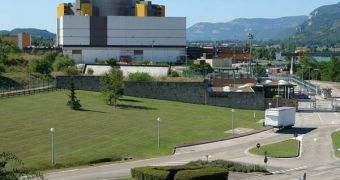Nuclear power plants are some of the most polluting structures in the world, and not necessarily as far as the actual amount of material they put out goes. Everyone remembers the Three Mile Island accident, and the Chernobyl reactor meltdown, in the Ukraine, to name just the most important mishaps that occurred since the technology entered use. In average power plants, the harmful byproducts of the reactions, which can cause large numbers of victims if they get out in the open, are currently trapped with a number of special resins, but their efficiency is brought into question by a newly developed material.
German and Indian experts, working together, have managed to create a new class of polymers, which has the ability to bind to some of the most long-lasting chemicals that result from nuclear reactions. In such a reaction, a neutron is absorbed by the nucleus of a uranium-235 atom (turning it into a uranium-236 one), which, in turn, splits into fast-moving lighter elements and free neutrons. The fission reaction is accompanied by the release of a vast amount of energy, and is kept in check by coolants and other safety measures, designed to regulate the overall energy output of the reactor.
One of the main concerns for radioactive build-ups in nuclear power plants' cleaning systems is the chemical element cobalt, which has a terribly long half-life. Usually, in most such facilities, water-cooling systems are endowed with variable amounts of materials such as carbon steel, which, when it interacts with coolants from the reactor, trigger the formation of important metal oxide deposits. However, these oxides have the drawback of trapping radioactive ions as well, leading to the aforementioned buildup of radioactivity in these systems.
Expert Börje Sellergren, writing in a recent issue of the journal Industrial & Engineering Chemistry Research, has led a team of experts that has proven that a new material, a special polymer, is able to fix that problem. The innovation is extremely absorbent for cobalt, but completely and totally disregards iron-based ions, which means that, if implemented, a new cleaning systems based on the new polymer could exhibit little to no radioactive buildup and, therefore, less danger to employees and the general populations living nearby.
The new polymer material is very different from the conventional ion-exchange resins, which are the regular choice for nuclear power plants cooling systems, ScienceDaily reports. In addition, its developers uphold, the material could also be used for decontamination purposes, in most of the reactors around the world. The compound is able to clean cooling systems working on a variety of structural materials, including carbon steel.

 14 DAY TRIAL //
14 DAY TRIAL //